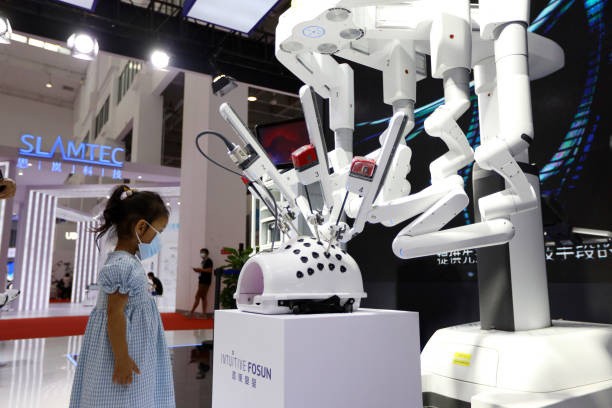Surgical Robot Sued For Allegedly Killing Colon Cancer Patient After Burning Hole Into Intestines During Surgery

A wrongful death lawsuit was filed in Florida this week claiming da Vinci, a cutting edge surgical device, allegedly burned a hole into a woman's small intestine while undergoing surgery for colon cancer.
The lawsuit states Sandra Sultzer developed abdominal pain and fever after her surgery in Sept. 2021 and needed follow-up procedures to close a tear. She died in Feb. 2022 due to a small intestine injury.
She was 78.
Her husband, Harvey Sultzer, is suing the maker of the technology, Intuitive, for damages.
A financial report filed by Intuitive in 2014 stated that the company was named as a defendant in approximately 93 lawsuits filed in various state and federal courts by plaintiffs alleging that they, or a family member, underwent procedures using da Vinci Surgical System and either sustained injuries or death as a result of the surgery.
RELATED: Elon Musk Funds Gina Carano's Lawsuit Against Disney For 'Mandalorian' Termination

Chief of cardiothoracic surgery at SUNY Downstate Medical Center, Dr. Robert Poston, is an avid user of the robot, saying he's able to use more precision with fewer complications and less blood loss.
However, he believes many surgeons are using da Vinci without adequate training.
"We shouldn't be operating until we've done all of the training that we think is reasonable," he said.
RELATED: Kim Kardashian Faces New Lawsuit After Woman Claims SKIMS Product Tore Her Skin Off
Although the da Vinci surgical technology is coveted as a breakthrough in modern surgery, it does pose many health risks.

The website's 'About Section' doesn't say much about who they are, but does feature a lengthy document providing a summary of risks associated with using their robots.
The list is divided into three parts; surgical risks for the patient, the surgeon, and a list of possible complications following specific medical procedures.
The FDA's MAUDE database, used to track issues with medical devices, identified more than 20,000 adverse events related to the da Vinci in the last 10 years.
© 2025 Enstarz.com All rights reserved. Do not reproduce without permission.





